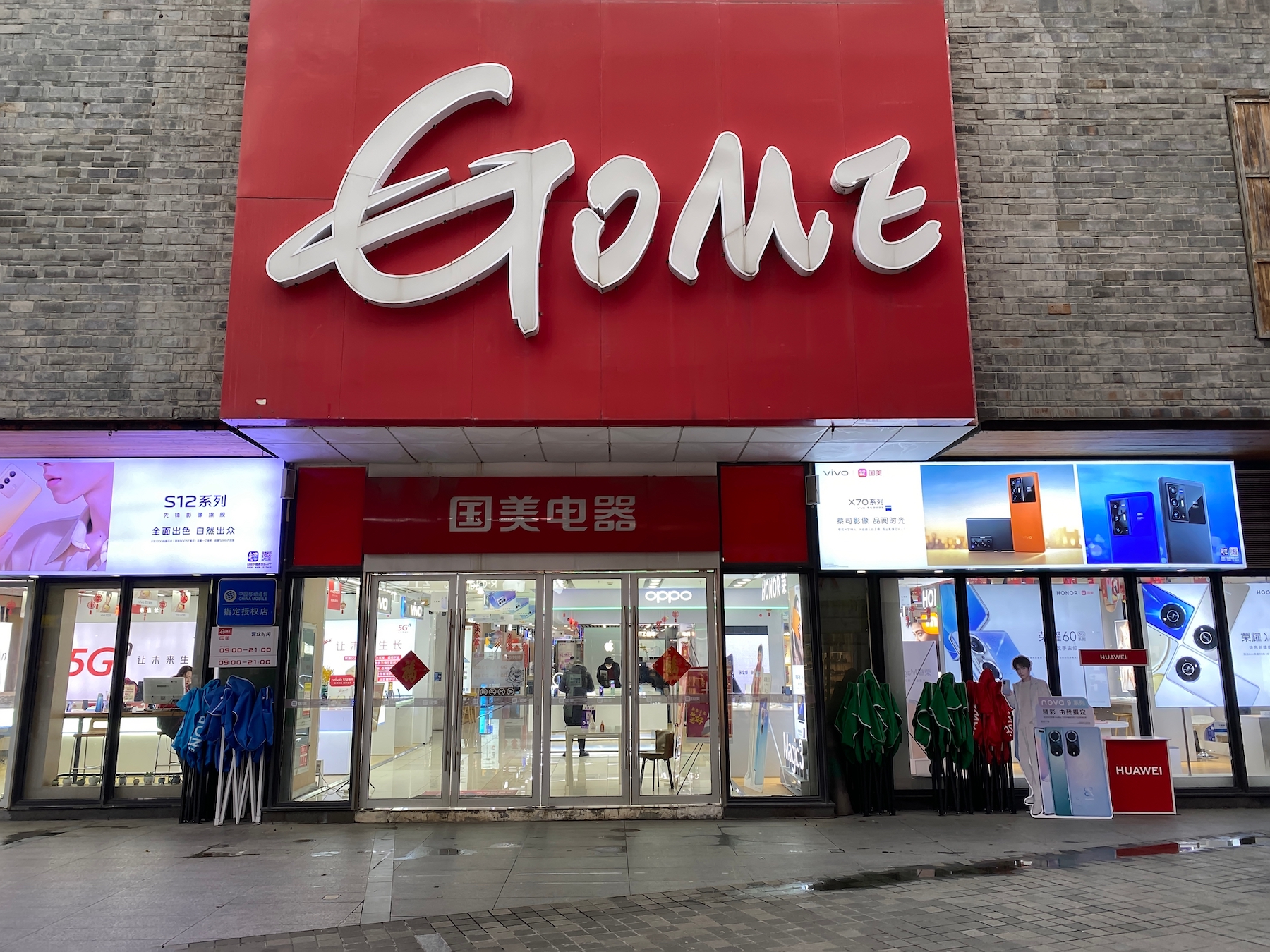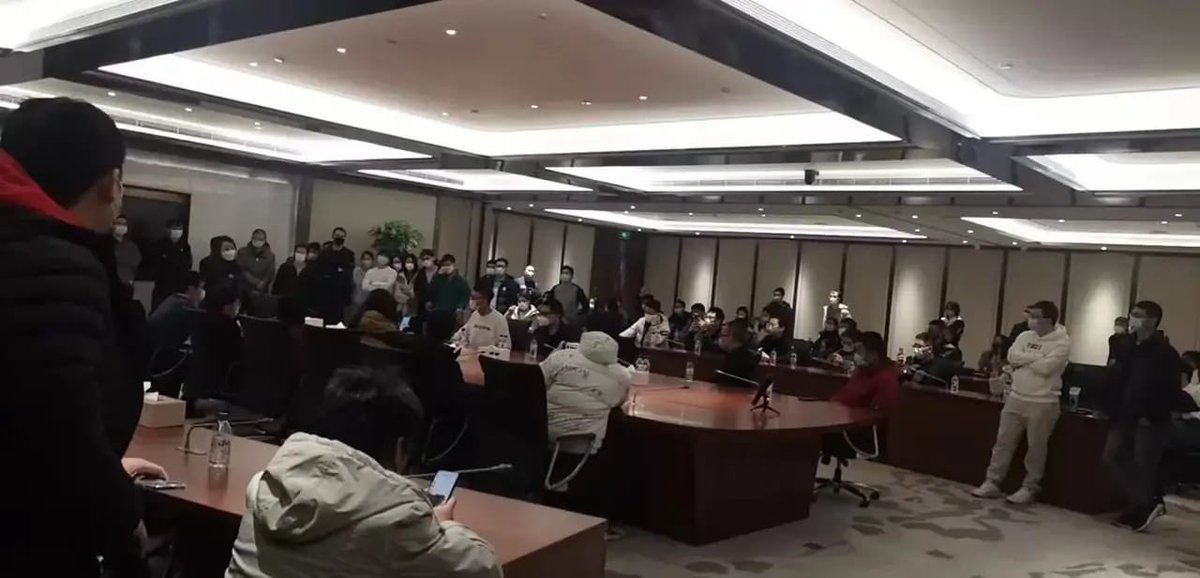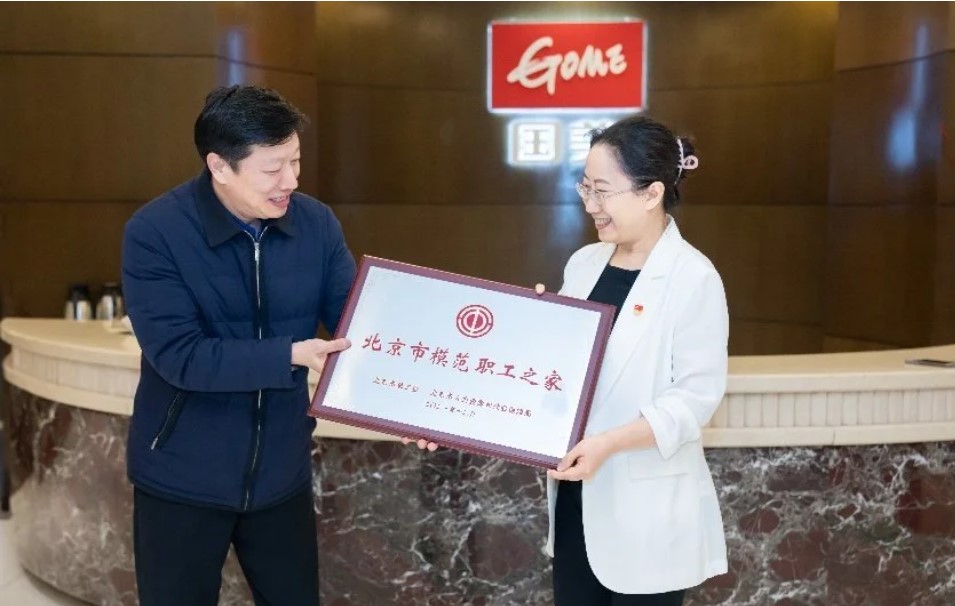Workers at one of China’s largest electrical appliance companies, Gome, have been laid off and some were not paid wages since July 2022. About a hundred Gome employees went to the company headquarters in Beijing on 5-6 December 2022, blocking the office and leading to physical confrontations with management, which were mediated by police.
Gome Holdings is one of China’s largest domestic electrical appliance retailers, with brick and mortar stores plus e-commerce platforms. The company chairperson was quoted in Sina Finance as saying that in 2023, the company was planning to close its smaller stores in 30 regions across China, leaving only 276 in operation. Consumers have recently complained about the effects of the company’s financial straits on refunds and other consumer issues.

Photograph: Robert Way / Shutterstock.com
In 2007, Gome Retail Holdings established an enterprise trade union. In China, all union structures including at the enterprise level are affiliated with the All-China Federation of Trade Unions. In our union investigation of the Gome case, CLB could not get in touch with the enterprise union, which was recently heralded as a model union by the Beijing municipal federation of trade unions. A model union would be one that stands up for workers’ rights and holds employers accountable for paying wages and benefits on time. Meanwhile, the district-level union in Tongzhou, Beijing, did not intervene in the negotiations in December, although they were aware of the issue when we called them in January 2023.
December 2022 worker-management negotiations do not lead to wages being paid, spark further conflict
In early December 2022, Gome management held negotiations with workers after they protested layoffs and unpaid wages, and reports indicate that about 20 worker representatives attended. Workers demanded their salaries from September, October and November 2022, as well as biannual bonuses, performance awards, and their housing provident fund payments since May 2022.

Gome workers negotiate in Beijing. Photo: Social media
The president of the company informed employee representatives that Gome would not pay wages for the entire second half of the year and wrote in a letter:
If you want to stay, then sign. If you want to go, then don’t sign and go through the legal settlement procedures.
That evening, Gome’s founder appeared at the negotiating table and said, "The employees are shameless." His words led to physical conflicts between employees and security guards, which required police mediation. The Gome employees' salary discussion lasted for eight hours without resolution.
The situation is not limited to Beijing. Gome workers in Chengdu, Sichuan province, subsequently protested on 8 December. Workers gathered inside the Gome office building and unfurled a large, red banner asking for their hard-earned wages.
District trade union was aware of the wage and benefits dispute but did not represent workers
The enterprise trade union of Gome Holdings Group was established in 2007. On 4 March 2022, the Beijing Municipal Federation of Trade Unions awarded the Gome Holdings Group enterprise union the honorary title of "Beijing Model Home for Employees" for its work the previous year. Only five months after the Gome enterprise union was awarded that title, the company started to default on its employees' wages.
When giving the award, the Beijing municipal union singled out the company’s union with high praise, saying that it had made breakthroughs in protecting rights and interests of workers. These included having a day where union representatives go to speak to frontline workers to hear their concerns and answer questions.

A Gome representative accepts the enterprise union award from the Beijing municipal federation of trade unions.
The director of the Tongzhou district trade union, Li Zhiyong, attended the awards ceremony in March. But when CLB called the Tongzhou district trade union office in January 2023, Li was not present, and his staff revealed that the union had not heard the voices of frontline workers when conducting their activities:
CLB: In the process of engaging the Gome enterprise union in your activities, did you come to understand the wage arrears problem at Gome?
Tongzhou union representative: We didn’t, we didn’t hear them mention it. We only talked about the activities and nothing else, and those we interacted with were those in charge, not regular workers.
CLB: Well isn’t that a bit weird, if you don’t mind me saying? There is this logic that the enterprise union and your district union are there to conduct union activities, and these should be to protect workers’ rights and interests, right?
Tongzhou union representative: Yes, that is our department’s activities, the rights defence department.
CLB: So in these union activities, for example at Gome with the Gome enterprise union, there weren’t any workers who participated?
Tongzhou union representative: We.. they.. The Gome enterprise union and us - we are only doing publicity activities, and we do not reach ordinary workers.
Economic changes are affecting China’s largest companies, and unions from the enterprise level up to the national level must do more to assist workers facing labour rights violations
The incident at Gome reflects changes in China’s economic landscape, as traditional retailers struggle in the new e-commerce landscape and with changed consumer behaviours as a result of the pandemic. Carrefour is another retailer facing domestic challenges, with CLB’s Strike Map collecting five separate collective actions against the supermarket chain in four locations since December 2022.
China’s largest companies have employees in a variety of sectors, from manufacturing to transport and logistics to service to tech. When these giants face financial challenges related to China’s overall economic condition, the result of increasing labour grievances should not come as a surprise, especially not to these companies’ enterprise trade unions.
And when workers face the power imbalances inherent in negotiations with management, the trade union should stand on the side of workers and advocate for a reasonable resolution that respects workers’ fundamental rights as a bottom line.
Further CLB reading:
- CLB Report: Waiting for Weiquan: Worker rights protection at the All-China Federation of Trade Unions (August 2022)
- What You Need to Know About Workers in China: Employment and wages (September 2020)
- CLB Newsletter: Medical interns and residents exploited by hospitals hit with wave of Covid-19 patients (January 2023)
